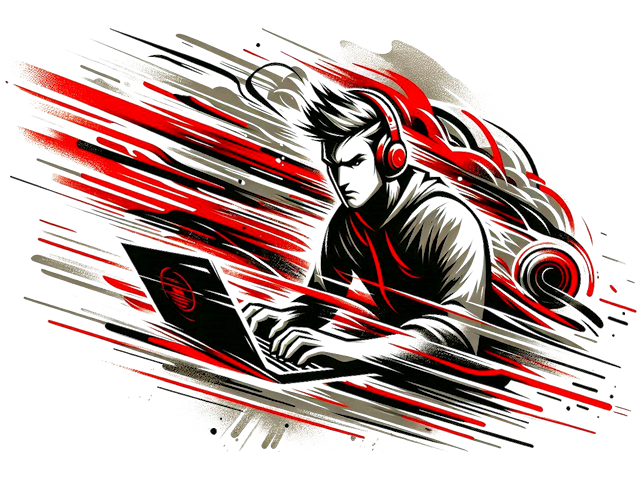 06.09.2025 - The skills, insights, and habits developed in the virtual dugout or boardroom are increasingly finding their way into amateur leagues, coaching sessions, and even professional decision-making.
06.09.2025 - The skills, insights, and habits developed in the virtual dugout or boardroom are increasingly finding their way into amateur leagues, coaching sessions, and even professional decision-making.
In recent years, the influence of online sports management games has extended far beyond the confines of the screen. What began as a niche form of entertainment for dedicated fans has evolved into a cultural and strategic force that is beginning to shape how people understand, discuss, and even participate in real-world sport.
One of the most significant ways this influence manifests is through the spread of tactical literacy. Sports management simulations expose players to a wide range of strategies, formations, and statistical models. A football enthusiast who has spent hundreds of hours fine-tuning a high-pressing system in a management game will often carry that understanding into their local club, whether as a player, coach, or simply an informed supporter. The vocabulary of tactics—terms like “false nine,” “zonal marking,” or “expected goals”—has entered mainstream fan discourse in part because games have made these concepts accessible and interactive.
The analytical mindset fostered by these games is also making its mark. In the virtual environment, success depends on interpreting data, identifying trends, and making evidence-based decisions. This approach mirrors the data-driven revolution in professional sport, but it is now filtering down to grassroots levels. Amateur coaches and team organisers are increasingly comfortable using performance statistics, fitness tracking apps, and video analysis tools—skills they first honed in the context of a game. The result is a more informed and methodical approach to sport at all levels.
Beyond tactics and analytics, online sports management games are influencing how people think about long-term planning in sport. In-game, a manager must balance immediate performance with future sustainability, considering factors such as player development, contract negotiations, and financial stability. These same principles are relevant in the real world, whether for a youth academy seeking to nurture talent or a semi-professional club managing limited resources. The strategic patience and foresight cultivated in the virtual space can translate into more resilient and forward-thinking organisations.
The impact is not limited to those directly involved in playing or coaching. Fans who engage deeply with sports management games often develop a richer appreciation for the complexities of running a team. This can lead to more nuanced discussions in supporter communities and a greater willingness to engage with the business and governance aspects of sport. In some cases, this knowledge has even inspired individuals to pursue careers in sports administration, scouting, or analytics, bridging the gap between hobby and profession.
There is also a social dimension to this phenomenon. Online sports management games often foster vibrant communities where strategies are debated, successes celebrated, and failures dissected. These interactions can build confidence and communication skills that carry over into real-world sporting environments. A player who has spent years discussing tactical adjustments in an online forum may feel more comfortable contributing ideas during a team meeting or post-match analysis session.
Perhaps most intriguingly, the influence of these games is beginning to be felt in professional contexts. While no simulation can perfectly replicate the unpredictability of live sport, some clubs have recognised the value of the analytical and strategic thinking that dedicated players bring. There are documented cases of individuals moving from the gaming world into scouting or analytics roles, their expertise in identifying patterns and optimising performance proving valuable in a competitive industry. The boundary between virtual and real sport is becoming increasingly porous.
The educational potential of sports management games is another area of growing interest. Schools, academies, and coaching programmes have begun to explore how these simulations can be used as teaching tools. By allowing students to experiment with tactics, manage budgets, and respond to dynamic challenges, games can provide a safe and engaging environment for learning the principles of sports management. This experiential learning can complement traditional coaching methods, offering a broader perspective on what it takes to succeed in sport.
Of course, the translation from screen to sideline is not without its challenges. The controlled environment of a game cannot fully capture the human factors—emotion, unpredictability, and interpersonal dynamics—that define real-world sport. Overreliance on virtual experience without practical application can lead to unrealistic expectations. However, when combined with hands-on involvement, the lessons learned in simulations can be a powerful supplement to real-world experience.
The cultural shift driven by online sports management games reflects a broader trend in the relationship between sport and technology. Just as wearable devices, video analysis, and AI-driven scouting tools are transforming professional sport, interactive simulations are shaping the way fans and participants think about the game. The result is a more engaged, informed, and strategically minded sporting community.
Looking ahead, the influence of these games on real-world sport is likely to grow. As simulations become more sophisticated, incorporating real-time data and advanced AI, the gap between virtual and actual management will narrow further. Players will be able to test strategies in a digital environment and then apply them on the field with minimal adaptation. This feedback loop has the potential to accelerate innovation in tactics, training, and team building.
In conclusion, the journey from screens to sidelines is no longer a rare or accidental occurrence. It is a natural progression for many who immerse themselves in the strategic and analytical challenges of sports management games. The virtual experience equips them with knowledge, skills, and confidence that can enrich their participation in real-world sport, whether as players, coaches, administrators, or informed fans. As technology continues to evolve, the interplay between the digital and physical realms of sport will only deepen, creating new opportunities for learning, engagement, and innovation.




